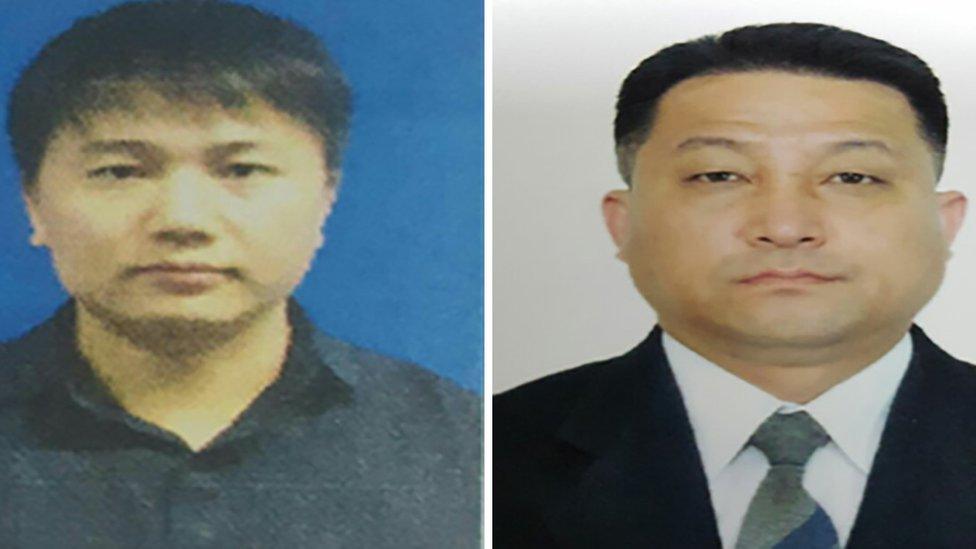Kim Jong-nam: Main players in mysterious killing
- Published
The killing of the North Korean leader's half brother, Kim Jong-nam, in Kuala Lumpur airport spawned a massive police investigation and a diplomatic row involving a large cast of characters. The BBC takes a look at the main players in the web of intrigue surrounding his death.
The Victim
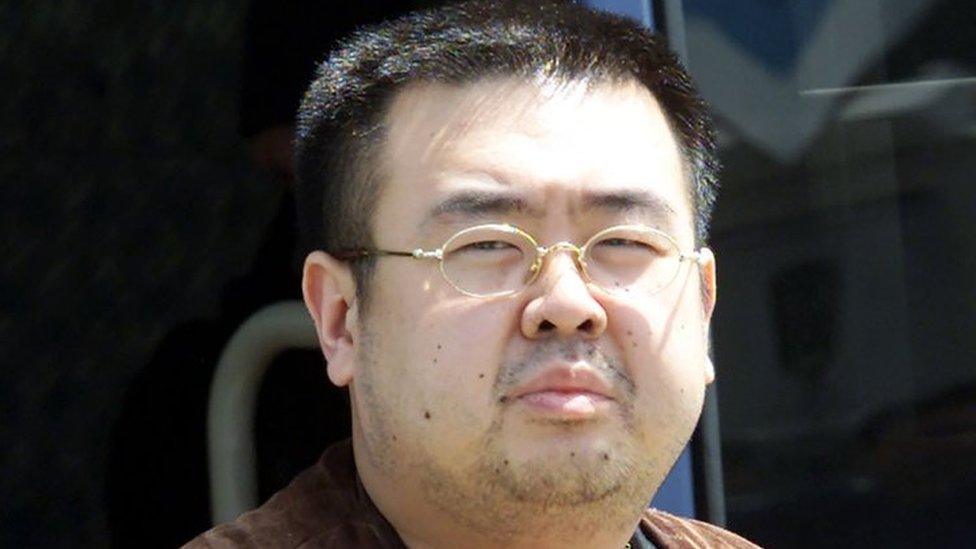
Kim Jong-nam (pictured in 2001) was North Korean leader Kim Jong-il's oldest son
The man at the centre of the mystery, Kim Jong-nam, 46, was an outspoken critic who lived a peripatetic life in exile.
Once tipped to be the next leader of North Korea, he fell out of favour in the early 2000s and soon left the country. His half-brother Kim Jong-un became leader after their father, Kim Jong-il, died in 2011.
Kim Jong-nam was mostly based in Macau, where he was heading when he was killed on 13 February.

The Suspects
Malaysian authorities had initially named at least 10 people in connection to the case, but so far have only prosecuted two of them.
On trial
Doan Thi Huong, 29, Vietnamese, one of the two women accused of wiping a toxin on Mr Kim's face, and who was seen in CCTV footage wearing a white top emblazoned with the letters "LOL".
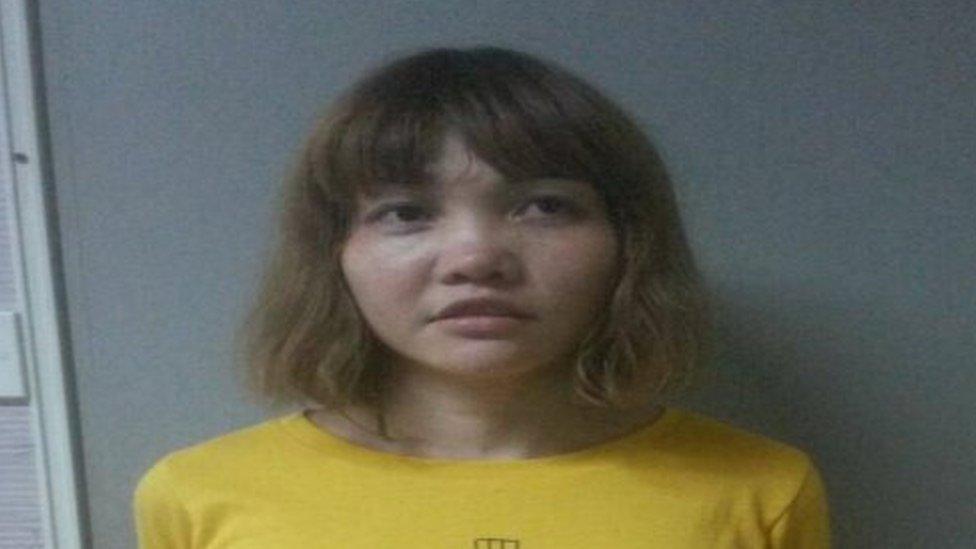
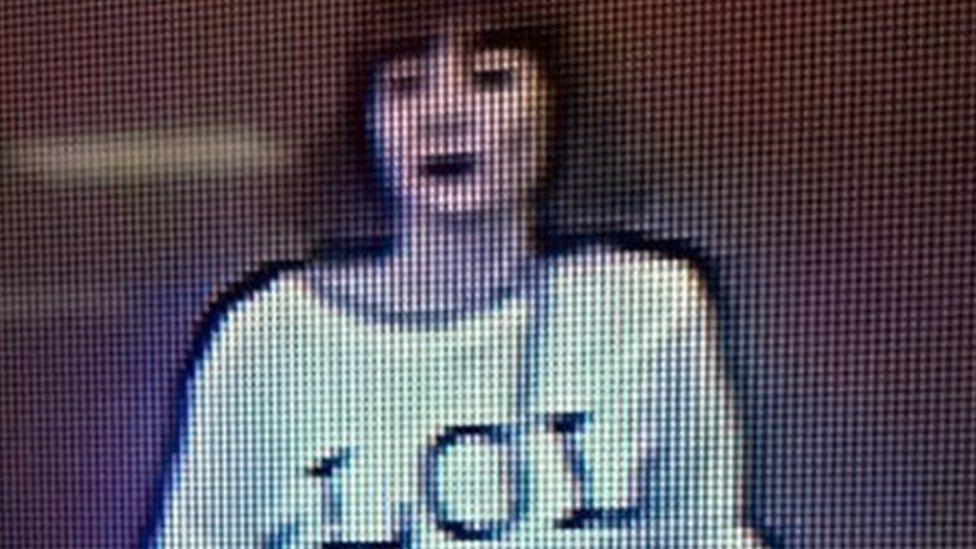
Siti Aisyah, 25, Indonesian, the other female suspect. Both Siti Aisyah and Doan Thi Huong have claimed they were tricked, and thought they were taking part in a TV prank.
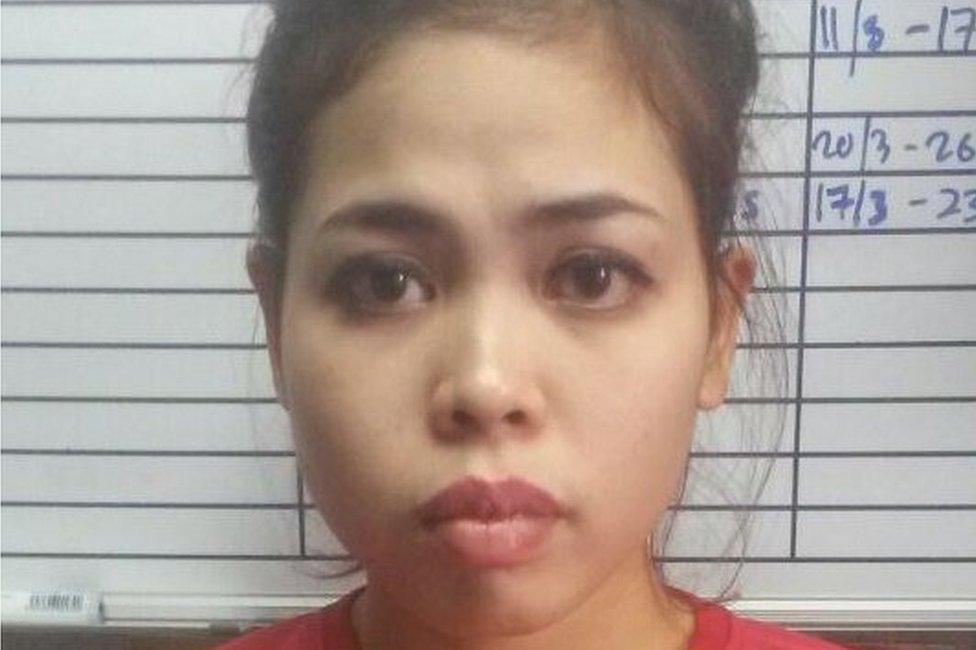
Read more: The women accused of killing Kim Jong-nam
Released by police
Ri Ju U, 30, a North Korean also known as "James". Lawyers for Siti Aisyah have said he tricked her into taking part in the attack. Thought to be one of three North Koreans deported in late March after they were questioned by Malaysian police.
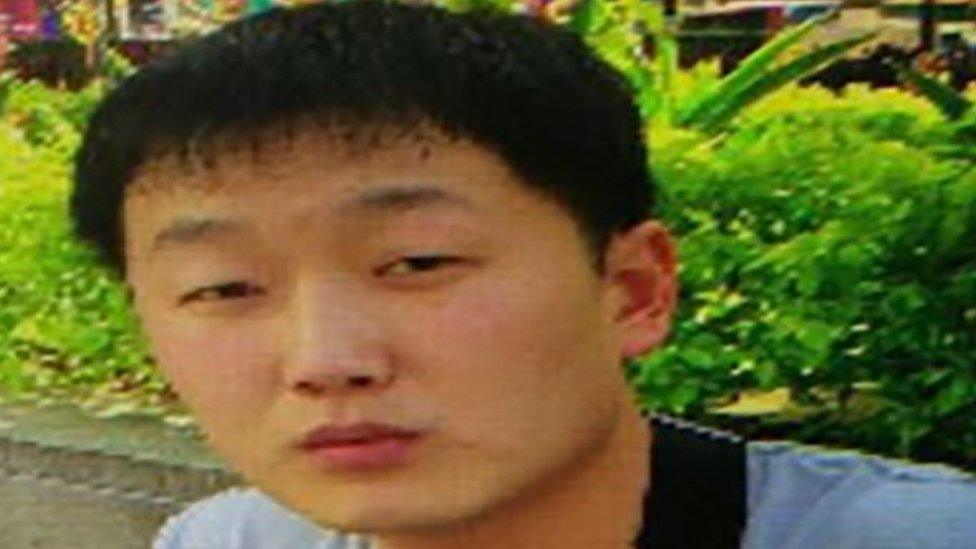
Hyon Kwang Song, 44, second secretary at the North Korean embassy in Kuala Lumpur. Thought to be one of three North Koreans deported in late March.
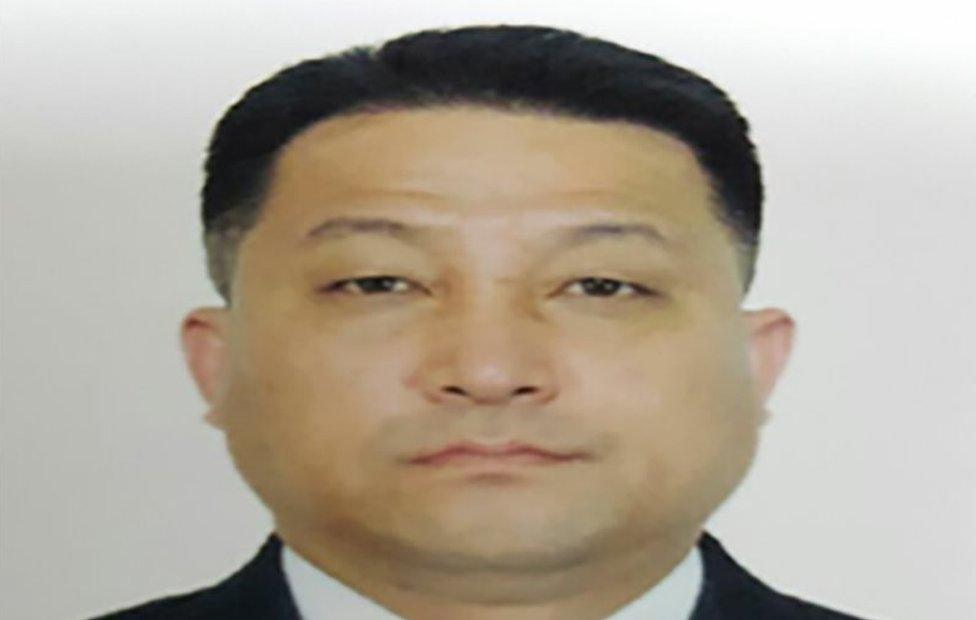
Kim Uk Il, 37, staff member of North Korea's state airline Air Koryo. Also thought to be among those deported in late March.
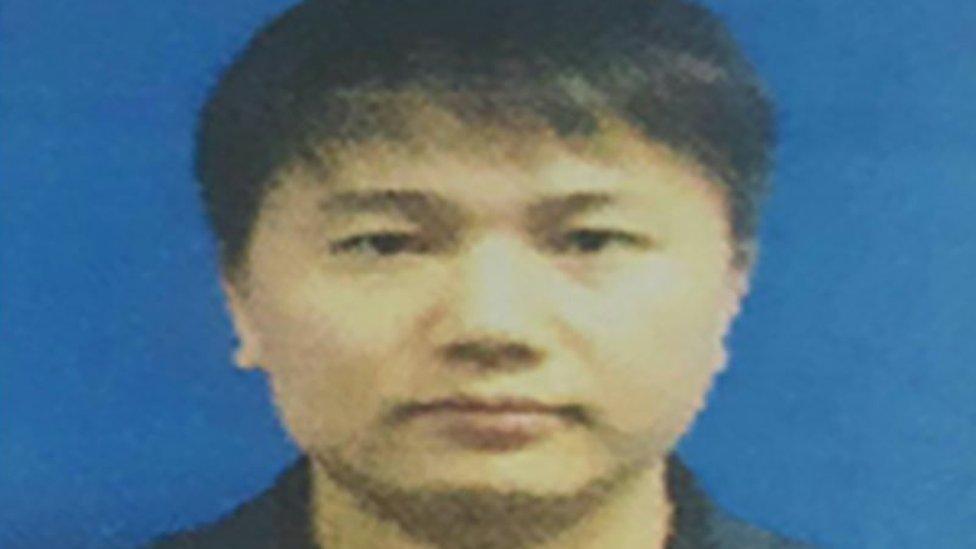
Ri Jong Chol, 47, a North Korean who was initially detained for questioning, but was released and deported in early March. He later claimed he was the victim of a conspiracy to tarnish North Korea's honour.
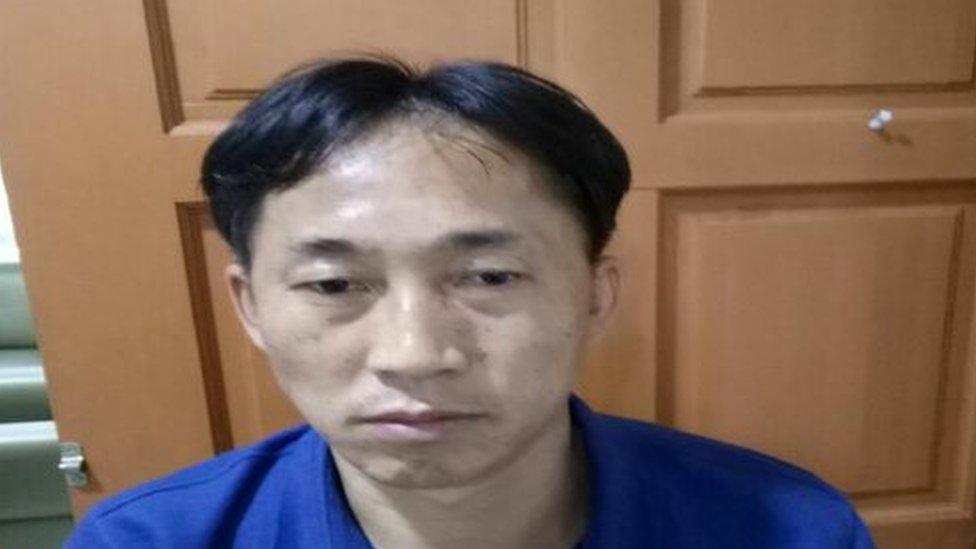
Police also briefly detained the Malaysian boyfriend of Siti Aisyah, Muhammad Farid Jalaluddin, but later released him without charge.
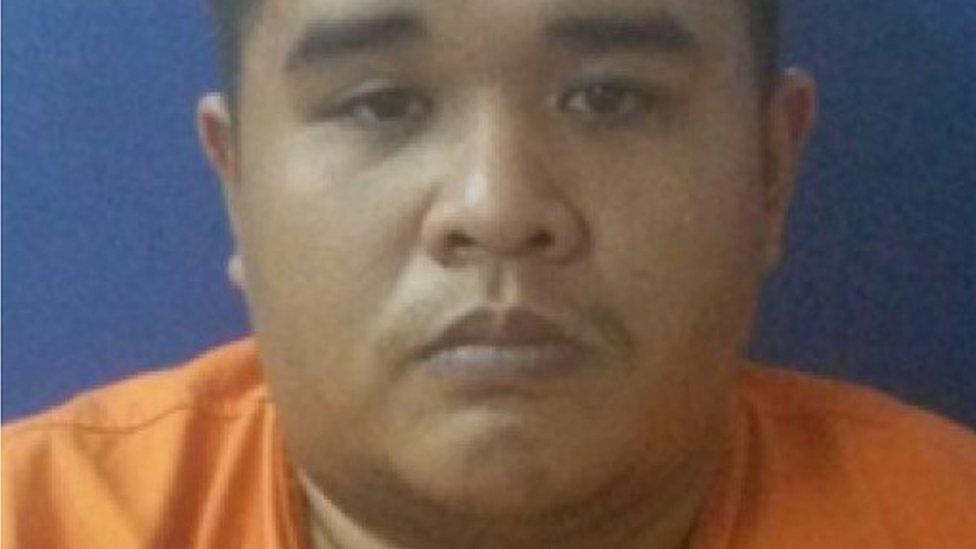
Still at large
Malaysian authorities have said these four men fled the country on the same day of the killing. In court, as the trial opened, prosecutors have merely listed four people, besides the women, on the charge sheet, and they were not named.
Ri Ji Hyon, 33, a North Korean.

Hong Song Hac, 34, a North Korean.
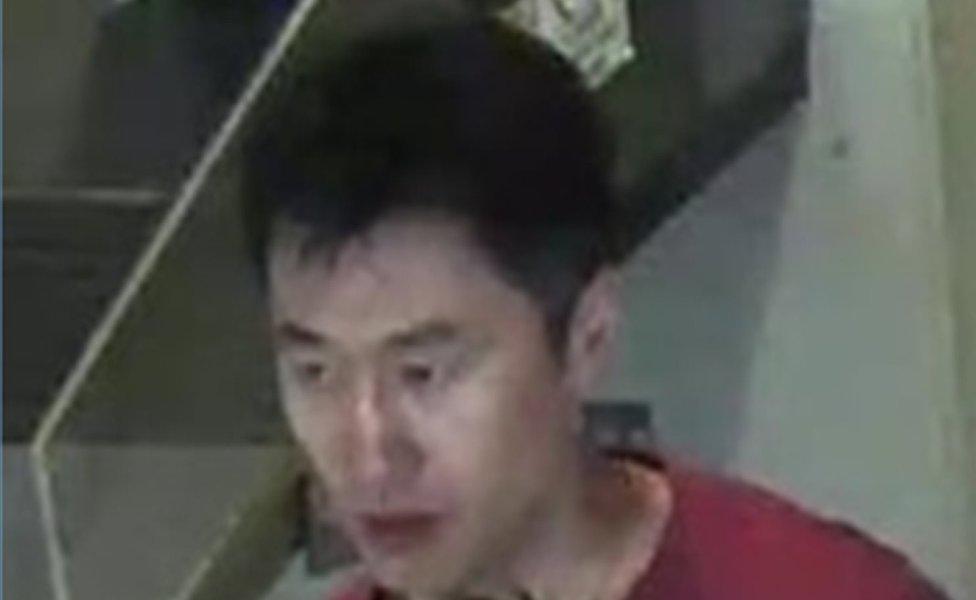
O Jong Gil, 55, a North Korean.
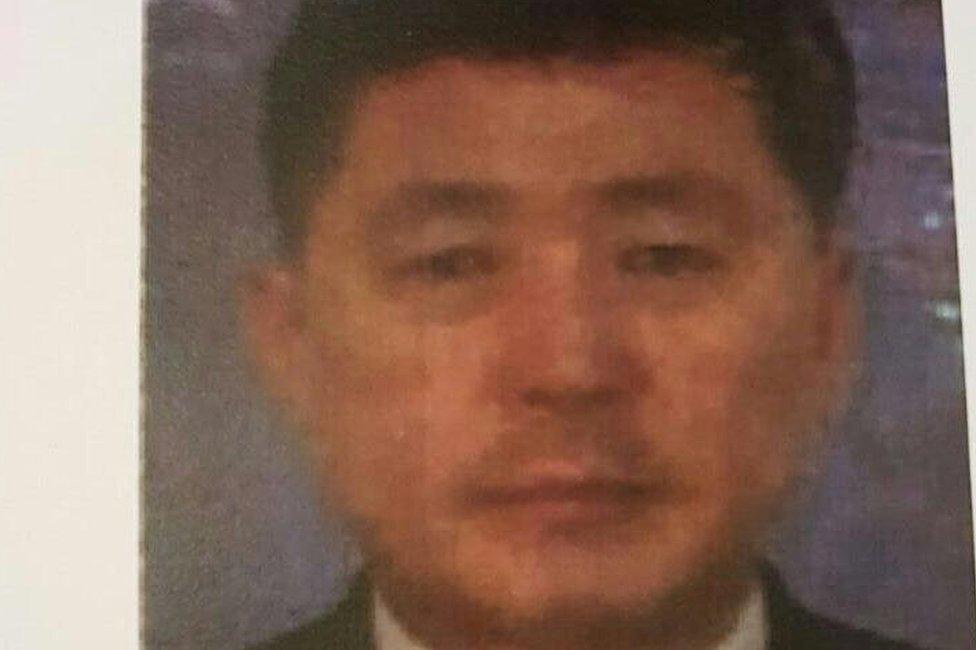
Ri Jae Nam, 57, a North Korean.
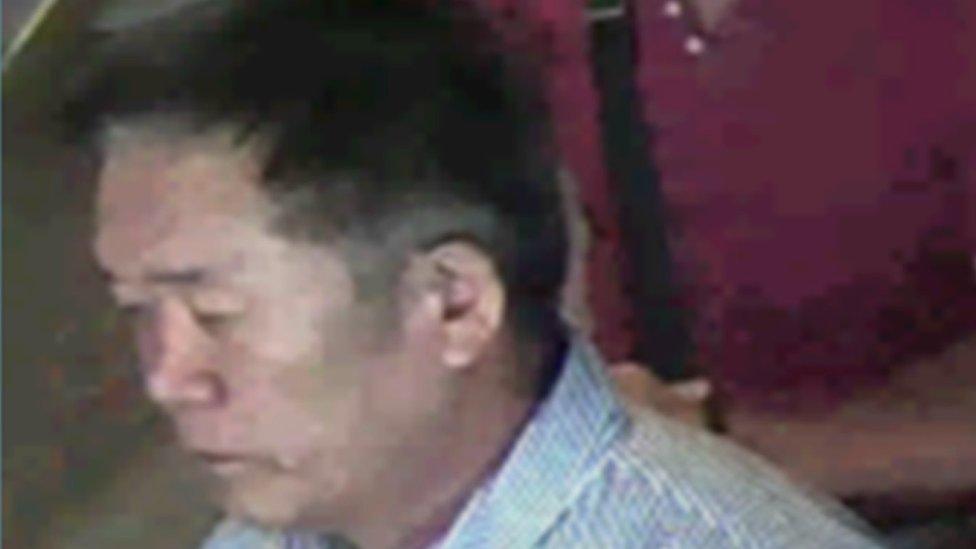

The Ambassador
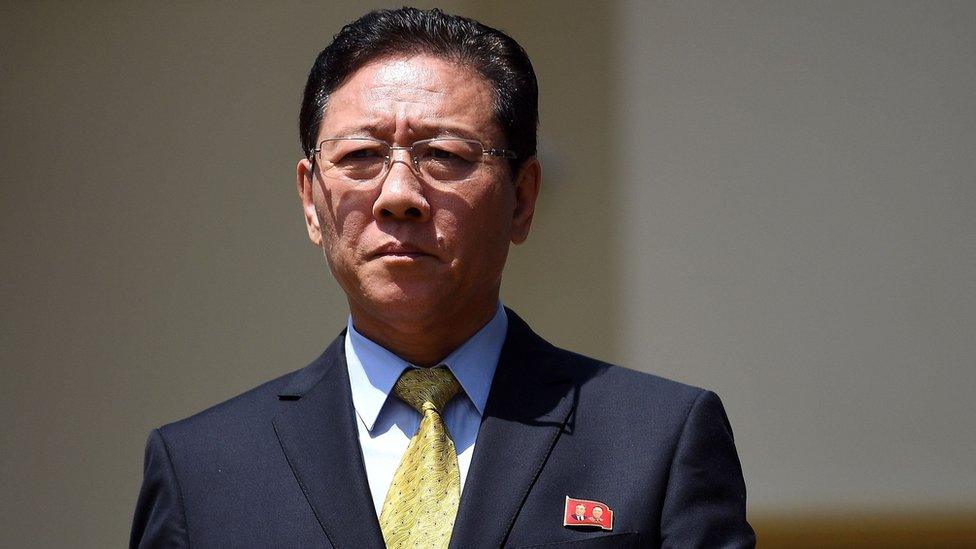
The murder sparked a diplomatic rift between Pyongyang and Kuala Lumpur, who previously had good relations.
Pyongyang's ambassador to Malaysia, Kang Chol, angrily rejected widespread speculation that his country was involved, and accused the Malaysian government of colluding with "hostile forces".
In response Malaysia's foreign ministry said the diplomat's allegations were "deeply insulting" and based on "delusions, lies and half-truths".
Kang Chol was later expelled from Malaysia, while North Korea also expelled Malaysia's ambassador in Pyongyang. The two countries also briefly refused to let each other's citizens leave.
The stand-off ended when Malaysia released three North Koreans and Mr Kim's body to Pyongyang, while North Korea allowed nine Malaysian diplomats and their families to go home.

The Son
Kim Han-sol: 'My father has been killed'
Kim Jong-nam's eldest son, Kim Han-sol, appeared in a video on 8 March confirming his father's death.
Born in Pyongyang in 1995 but raised in Macau, Kim Han-sol has studied in Bosnia and France, and is said to take after his father in terms of holding open-minded views about the world.
He has publicly expressed hope for reunification of the two Koreas, and has referred to his uncle Kim Jong-un as "a dictator".
His current whereabouts are unknown but he said in the video that he was with his mother and sister.
- Published15 February 2017
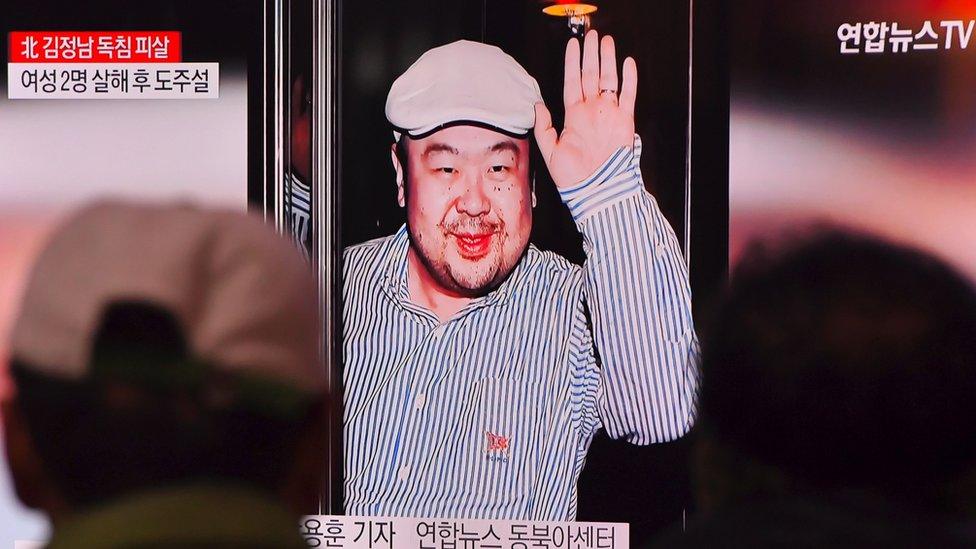
- Published20 February 2017
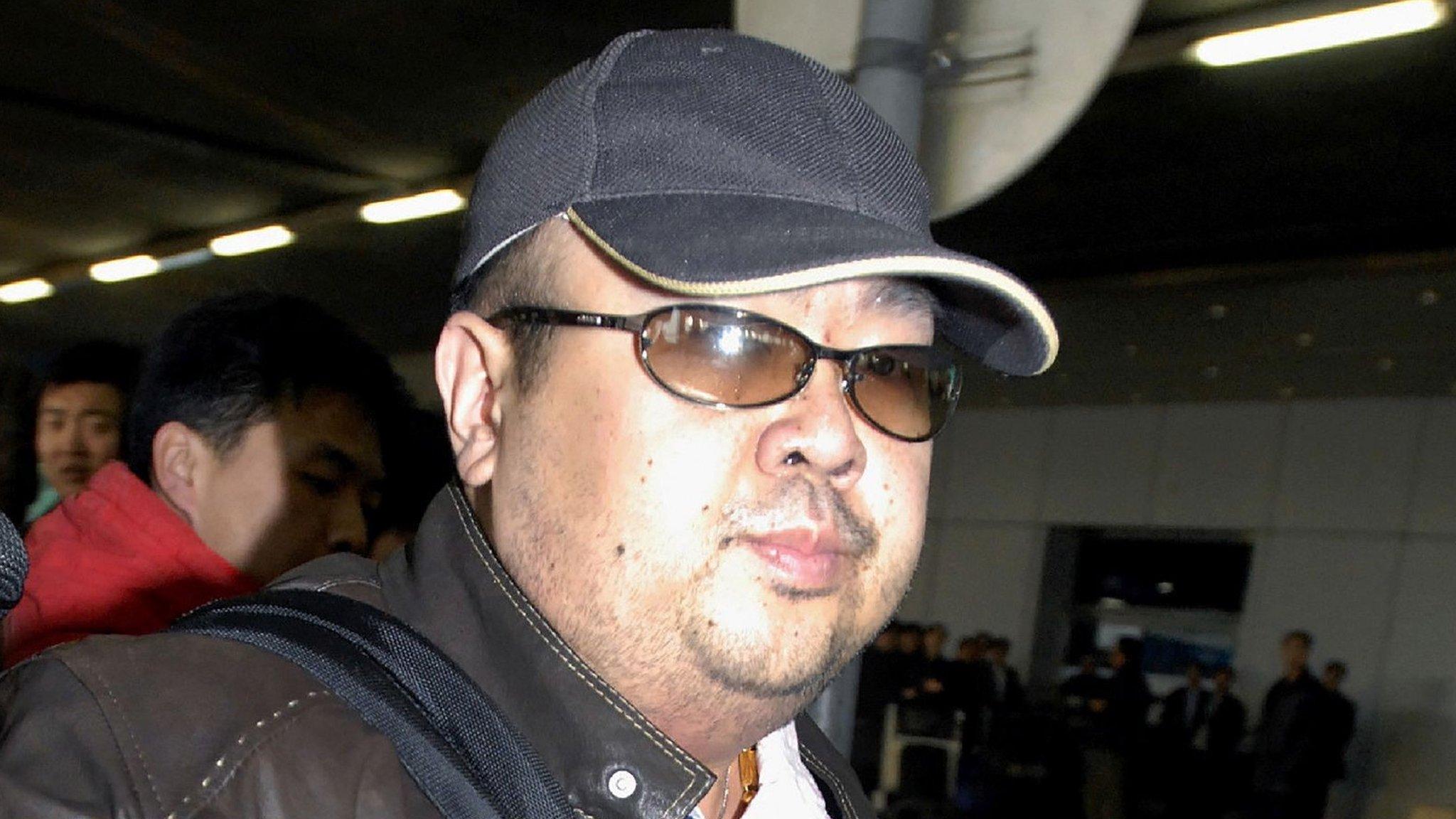
- Published22 February 2017
